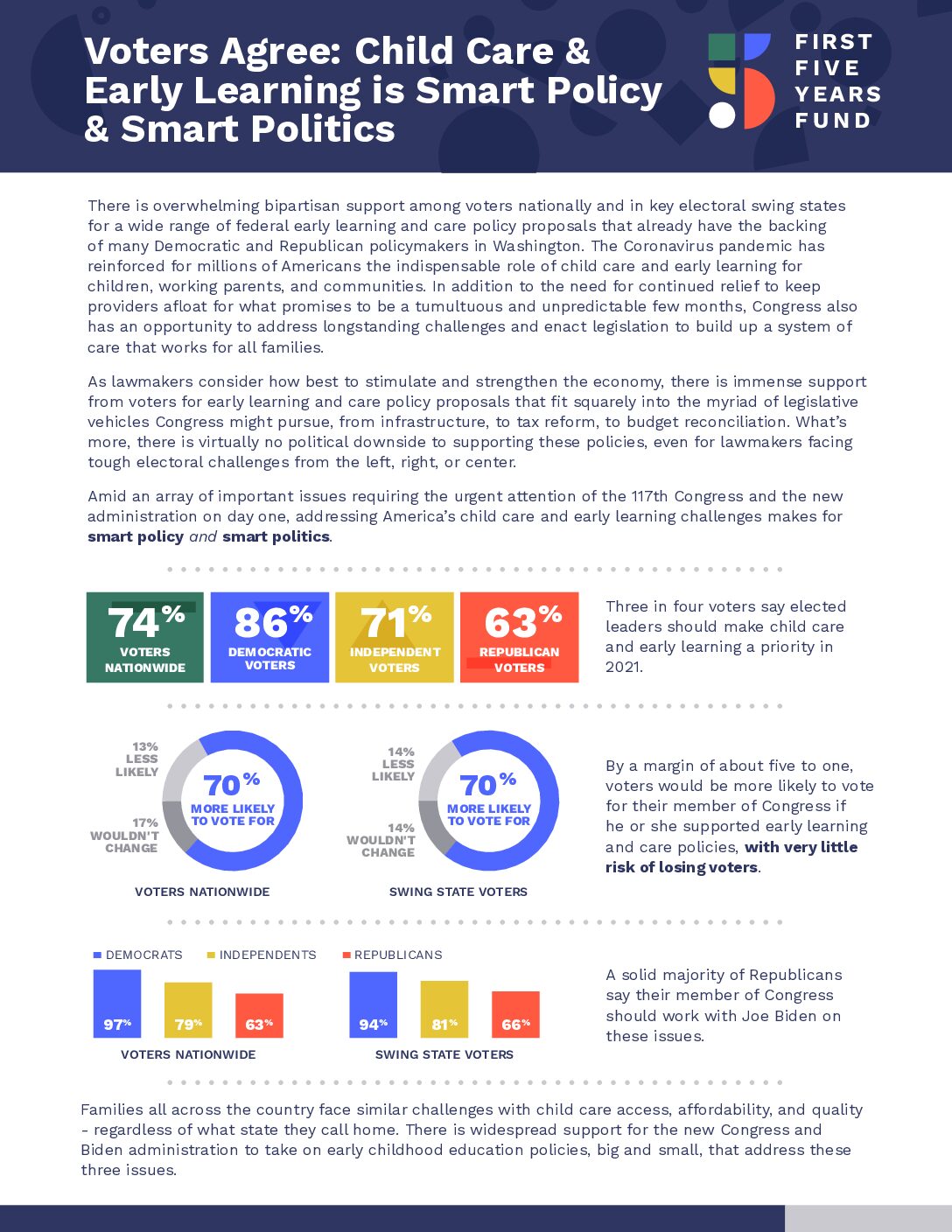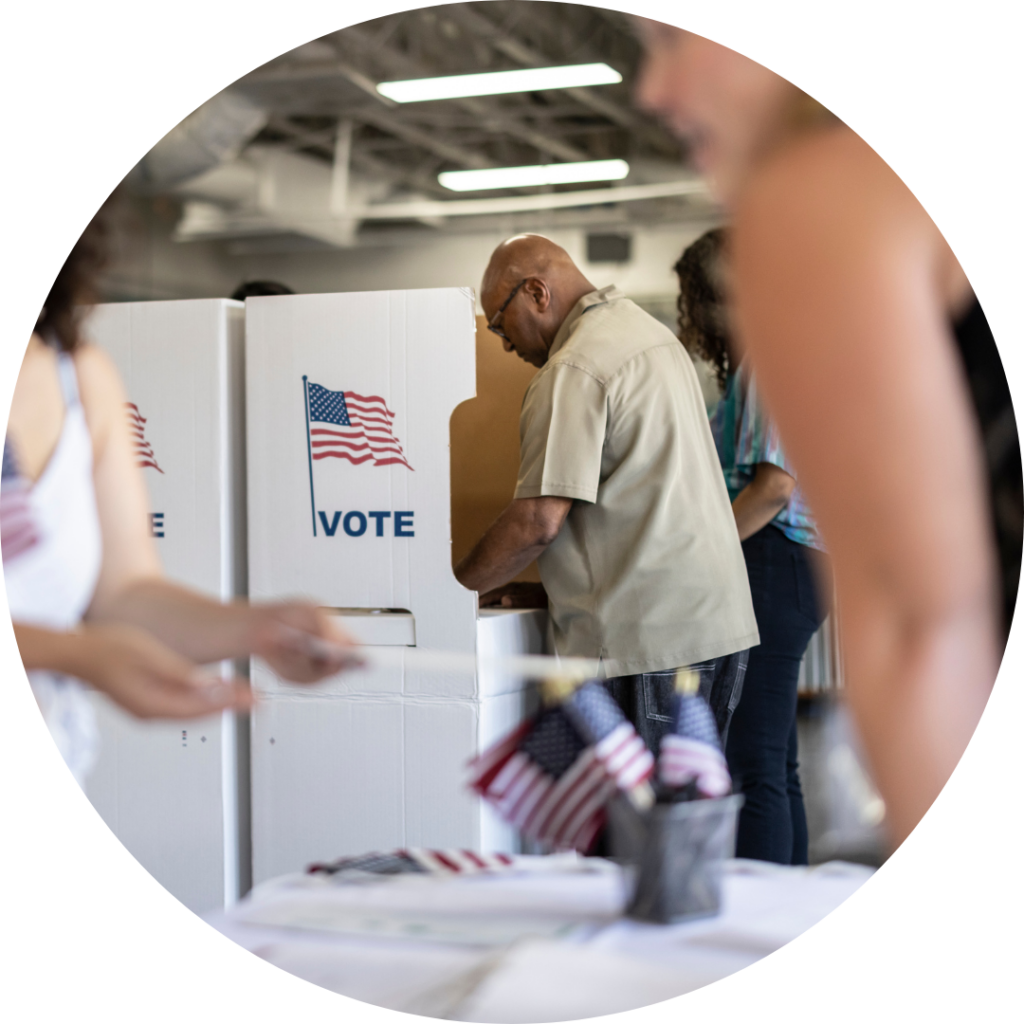2021 Policy Poll: Fact Sheet
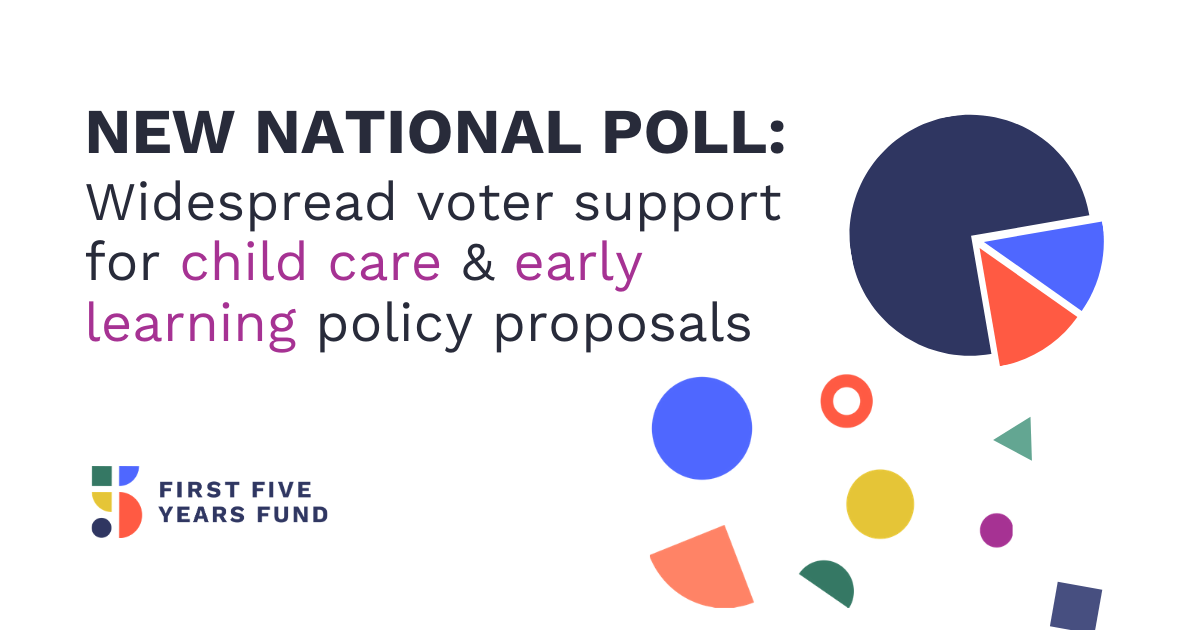
There is overwhelming bipartisan support among voters nationally and in key electoral swing states for a wide range of federal early learning and care policy proposals that already have the backing of many Democratic and Republican policymakers in Washington. The Coronavirus pandemic has reinforced for millions of Americans the indispensable role of child care and early learning for children, working parents, and communities. In addition to the need for continued relief to keep providers afloat for what promises to be a tumultuous and unpredictable few months, Congress also has an opportunity to address longstanding challenges and enact legislation to build up a system of care that works for all families.
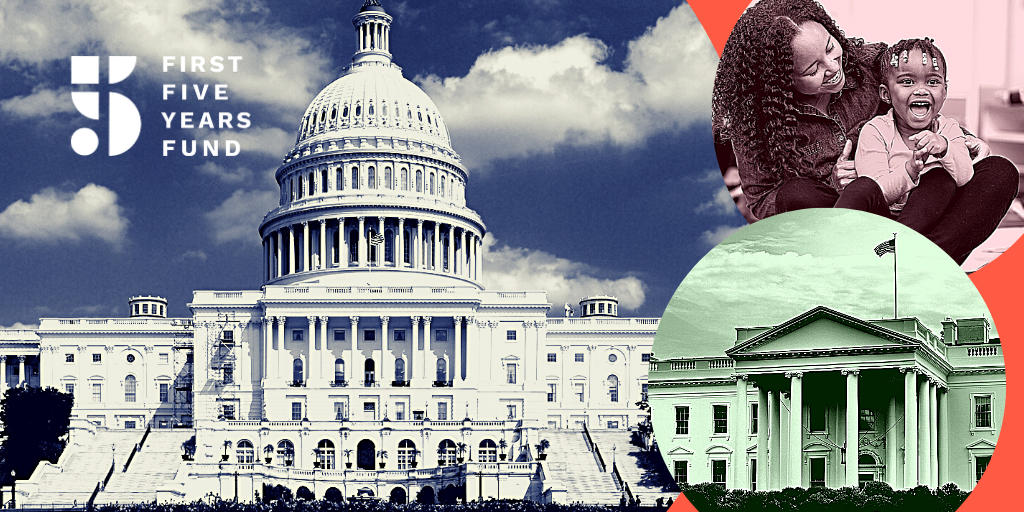
As lawmakers consider how best to stimulate and strengthen the economy, there is immense support from voters for early learning and care policy proposals that fit squarely into the myriad of legislative vehicles Congress might pursue, from infrastructure, to tax reform, to budget reconciliation. What’s more, there is virtually no political downside to supporting these policies, even for lawmakers facing tough electoral challenges from the left, right, or center.
Amid an array of important issues requiring the urgent attention of the 117th Congress and the new administration on day one, addressing America’s child care and early learning challenges makes for smart policy and smart politics.

Three in four voters say elected leaders should make child care and early learning a priority in 2021.
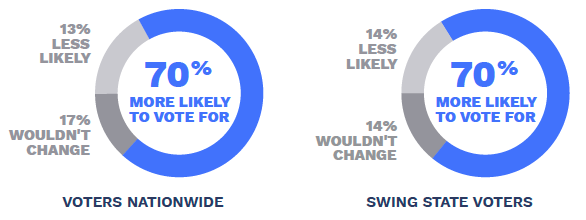
By a margin of about five to one, voters would be more likely to vote for their member of Congress if he or she supported early learning and care policies, with very little risk of losing voters.
A solid majority of Republicans say their member of Congress should work with Joe Biden on these issues.

Families all across the country face similar challenges with child care access, affordability, and quality – regardless of what state they call home. There is widespread support for the new Congress and Biden administration to take on early childhood education policies, big and small, that address these three issues.
| ACCESS | TOTAL | GOP | IND | DEM |
|---|---|---|---|---|
| Make preschool more available by providing it to all three- and four-year-olds whose parents want to send them. The programs would have no cost to parents. | 84% | 73% | 84% | 95% |
| Increase the number of available spaces for children in child care programs nationwide by increasing federal funding to build new child care facilities. | 80% | 66% | 81% | 93% |
| Provide support to more at-risk families by expanding funding for voluntary home visiting programs. | 83% | 75% | 81% | 92% |
| Increase the availability of quality child care for families by providing a tax credit to businesses that help their employees access and afford quality child care. | 87% | 84% | 82% | 93% |
| AFFORDABILITY | TOTAL | GOP | IND | DEM |
|---|---|---|---|---|
| Make child care more affordable by providing financial support to help working families pay some or all of the cost of quality care. What families pay would be on a sliding scale based on their income. The typical family would pay about $45 per week. | 86% | 78% | 83% | 93% |
| Make child care more affordable by providing parents with a tax credit to help pay for child care. The credit would be available to all working parents, regardless of how much they pay in federal income taxes. | 85% | 79% | 83% | 93% |
| QUALITY | TOTAL | GOP | IND | DEM |
|---|---|---|---|---|
| Attract, retain, and support quality early childhood educators and caregivers by paying better salaries and providing them with opportunities to increase their skills through ongoing training, education, and certification, which would improve the instruction and care that children receive. | 88% | 81% | 87% | 96% |
| Improve existing child care facilities by increasing federal funding to make them safer and more appropriate for young children’s development, and meet the needs of children with disabilities. | 87% | 76% | 86% | 96% |
SWING STATE VOTERS’ SUPPORT FOR EACH POLICY IS WITHIN 2-3 POINTS OF VOTERS NATIONWIDE
Subscribe to FFYF First Look
Every morning, FFYF reports on the latest child care & early learning news from across the country. Subscribe and take 5 minutes to know what's happening in early childhood education.
